 One nickname I have for my dog is “Curious Kai.” She eagerly sits by my side to sniff the contents of any newly-arriving package, or she joins me in the kitchen to gauge what is being cooked for dinner (or, more likely, what will be dropped on the floor in the process). In any case, I’m often a lot like Kai. I always want to know the why behind how things work. I like to ask questions of others, simply to increase my knowledge and to understand how they might be experiencing life. And, I also shine in the learning process. Actually, I thrive on it.
One nickname I have for my dog is “Curious Kai.” She eagerly sits by my side to sniff the contents of any newly-arriving package, or she joins me in the kitchen to gauge what is being cooked for dinner (or, more likely, what will be dropped on the floor in the process). In any case, I’m often a lot like Kai. I always want to know the why behind how things work. I like to ask questions of others, simply to increase my knowledge and to understand how they might be experiencing life. And, I also shine in the learning process. Actually, I thrive on it.
Over time, I’ve developed a knack of asking great questions. This not only prompts others to answer in a way that will suit your curiosity, but it can create a more clear path for a conversation to move forward. Here are the top ten questions I’ve put together to help you uncover whether or not a studio is a good fit for you. And, by asking these questions, you will help shine as a prepared and intelligent instructor.
Photo: Stephanie McCabe
BE INTERVIEW READY
Congratulations!! You’ve done the research and prepared in such a way that you scored yourself an interview.
When the time comes to meet with the studio owner, studio manager, or wellness director, their goal is to get a sense of your personality and skill set. They do this by analyzing the way you speak and utilize your body language when they ask you their set of questions. Yet, this is only half of the equation. By taking the initiative to ask purposeful questions yourself, you display numerous valuable qualities to this potential employer. One of these is your ability to be a great listener.
WHY IS LISTENING SO IMPORTANT
Listening is very different from hearing.
Hearing is the way in which our brain recognizes sound waves being transmitted by the ears. The short term memory, which is controlled by the conscious mind, then holds those incoming signals. Based on the limited capacity of the conscious mind, much of the information you hear gets easily forgotten. It is really your perception of the incoming information which decides what data you hear and forget, and which information you decide to keep and act upon.
Thus, listening is a choice. You decide what information sticks. Listening is a persistent and decisive skill which must be continually refined.
By asking questions, and actually listening to your interviewer, you will shine in the following ways:
It shows you care
Business owners love to work with people who have a strong drive for excellence. When you come prepared to your interview with a list of questions for them, it reveals you are sincerely interested in more than just getting a teaching position. You demonstrate that you want to understand the underpinnings of how their business operates, how the other instructors form a larger team to serve the community, and how you might be able to bring your unique skill set to the table in order to help the studio grow.
You display respect for the person interviewing you
When you listen to what is being said by the person, or people, in front of you, it reinforces more than you just care about their business. It shows you value them as a person, too. And, taking the time to ask questions slows you down. In this space, you can express a real interest in what you hear, and acknowledge the perspective of someone else. Even if your nervous heart is beating quickly in your chest, you can authentically listen in the following ways:
- Make eye contact (but not the awkward-staring-contest-kind-of-way. Remember to blink). Just keep a genuine sparkle in your eye when your gaze meets theirs.
- Restate what you hear from them to confirm you understood what they said. This shows you don’t just make assumptions, and that you do want to comprehend the meaning behind their words.
- Smile or nod when you agree with what they say. Simple body movements like this go a long way to build rapport (or harmony) in this potential relationship.

Photo Credit: David Zawila
MORE BENEFITS OF LISTENING
It shows you honor the time you both are sharing together
Time is one of the most valuable assets we all possess. According to a 2015 Gallup survey, 48% of working adults feel rushed for time, and 52% feel stress about this as a result. Even if the interview doesn’t feel hurried, you both have carved out this time from your (likely) busy schedules. Asking pertinent questions reveals you want to make the most out of your interaction together. Get to the point. Be specific. And allow the questions you ask to provide the answers you are looking for in a timely manner. They’ll appreciate this level of efficiency.
You reveal an abundance-mentality
At some point along your journey, you realized that you can choose your own clothes, friends, and life experiences. And, you can also select your workplace and co-workers, too. The abundance mindset honors the fact that there are endless opportunities out there which satisfy your unique desires and talents. With an abundance mentality, finding a studio at which to teach becomes similar to shopping for a pair of shoes–you might have to try on quite a few before finding the perfect match.
By asking questions at your yoga interview, it reveals that you want your new position at a studio to be a good fit for both you, the owner, and their team as a whole. When you have choices, you feel a sense of freedom. And, when owners sense this within you, the potential for positive growth within your working relationship (should you choose to form one) can be unlimited.
10 YOGA INTERVIEW QUESTIONS TO ASK, AND WHY
Usually, during an interview, the company wants to ask questions of you first. Then, they pass you the baton and ask if you have any questions of them. This is your chance to shine.
As you ask the questions below, remember to stay focused. Refrain from interrupting the speaker while you listen to their answers. Then, when they are done speaking, you can ask more questions to make sure you heard them correctly (or to get more details). Most importantly, have fun in the process and enjoy the learning that will naturally come just by having this experience.
QUESTION 1: WHAT IS YOUR VISION FOR THE STUDIO?
 Reasons for asking this:
Reasons for asking this:
Find out if your direction lines up with that of the studio. You also want to discover if, or how, you can use your skill set to help make the vision for the studio a reality. Listen to the areas in which the owner wants the studio to grow, and formulate any ideas about how that could happen. If the studio owner doesn’t have an answer, that could be a red flag. Or, this could be viewed as a massive opportunity to step in and be part of building a business from the ground floor. No decision needs to be made right away. Just listen to their other answers and trust your gut when making the final decision to join should they offer you a position,
Related questions:
- In what ways does your studio mission get put into action today?
- How do you connect with the community as a whole?
- Can you describe how you want the studio to grow in the next five years?
Photo: Matthew Fassnacht
QUESTION 2: WHAT TYPES OF STUDENTS DOES YOUR STUDIO SERVE?
It’s important to ask this because:
You want to discover as much about the demographics of their market as possible. Get to know the age, ability level and style preferences of the students that attend there (even if you already have an idea of this from attending classes there yourself). It’s good to hear this information from the owner’s perspective. And, while you may have noticed their scheduled classes online (such as power flow, hatha, or restorative), those labels won’t portray an accurate picture of the types of bodies that are taking those classes. When you more deeply understand the yogis who make up this particular community, you can gauge the best way to address them as a teacher. And, you can find ways to fill in any gaps to help the studio expand.
Similar questions:
- Do you have classes for specific sectors of the population (seniors, men, etc)?
- Is there any sector of the population to which you’d like to reach out more?
QUESTION 3: HOW DOES THE YOGA STUDIO MARKET OR ADVERTISE?
Why this is important:
First off, you want to get an idea of how proactive the studio is in building their clientele (and supporting their team of teachers). Second, their answer will reveal which marketing strategies have been successful for them in the past, and it might provide a blueprint for how you could market yourself in a similar fashion. Third, a picture will be painted of how much marketing you will need to do yourself, in addition to what is being done by the studio, to bring new students to your classes. If you specialize in marketing, you can always add value to the team by sharing tactics you’ve found to be effective.
Photo: Casey Brooke Photography
Questions to learn more:
- How do most new students find your studio? Online, word of mouth,etc?
- Do you run internet specials such as Groupon or Travelzoo?
- Are there any other companies or studios with whom you partner in town?
QUESTION 4: WHAT ARE AVERAGE CLASS SIZES FOR OTHER INSTRUCTORS?
Why you want to know this answer:
When you gauge the class sizes at the studio, you will be able to more easily calculate your pay rate if the studio pays per client. You can also tell how much additional marking you might have to do, independent of the studio, to build a following.
Related Questions:
- How long have some of your instructors been at the studio?
- What marketing techniques do other teachers use to build their classes? (Note: This is not a question to be asked in order to beat competition. Instead, it’s a way to get a pulse on what is working in the industry)
QUESTION 5: WHAT ARE YOUR EXPECTATIONS OF YOGA TEACHERS AT THE STUDIO?
The reason this is important:
Instead of guessing what your responsibilities would be at the studio, let the owner tell you how they want their team to participate. Would they like you to take a certain number of classes at the studio when you’re not teaching? Do they request you dedicate an additional amount of time to assist in non-teaching tasks, such as cleaning or checking-in students? How many classes do they expect their teachers to lead each week? Once you have a clearer picture of what they envision, you will know if you can, and want to, meet those expectations.
Similar Questions:
- Do you require instructors to teach exclusively at your studio or club?
- How early do you expect teachers to arrive before class?
- Are there any additional tasks that need to be done after teaching a class?
QUESTION 6: WHAT IS THE PAY STRUCTURE?
Why you want to know their answer:
There are a few reasons to ask this question directly. First, it gives you an idea of what your base pay would look like. If classes are paid per student, you know your level of responsibility in building class volume to achieve the hourly rate you desire. If the studio pays per class, you can decide if the dollar amount is going to meet your expectations. In any case, you will get an instant perspective on your income potential at that location. Secondly, you can start planning ahead to negotiate a raise down the road. If you notice that the initial pay is lower than you desire, you can put a plan together to demonstrate how your performance and added value to the team is worth a higher pay rate.
More specific questions:
- Do you pay a flat rate per class? Or, do you pay per client?
- Would you consider a hybrid model (base rate, plus pay per student)?
- What is split for events or workshops?
Photo: Jordan Butler
QUESTION 7: DO YOU HIRE TEACHERS AS EMPLOYEES OR INDEPENDENT CONTRACTORS?
Reasons for asking this:
The answer to this question essentially defines the basis of your relationship with this studio. If you are an employee, often the studio will cover the cost of insurance, withhold taxes from each paycheck, and usually have a more specific list of requirements from all staff members. If the latter is their answer, you will be your own boss as an independent contractor. More business responsibilities (such as insurance, tax preparation, etc) will fall on your shoulders, so you’ll want to prepare for these in advance.
More questions along these lines:
- What is your specific job description for your employees or contractors?
- How often do paychecks get sent out?
- Do you offer direct deposit?
QUESTION 8: HOW OFTEN DOES THE STUDIO TEAM GET TOGETHER TO COLLABORATE?
Why you want to know this answer:
If you are committed to personal and professional growth (like I know you are), then you want to learn from the wealth of knowledge provided via the other instructors around you. Do teachers meet to discuss what is, and isn’t, working at the studio? Do they discuss interesting class studies or student injuries? Even though you might be teaching a yoga class alone, it can be helpful to know you are part of a passionate team who wants to create the best for themselves and their students.
Questions to go deeper:
- Does the studio host any social gatherings?
- How does a teacher provide feedback to help improve the studio?
- In what ways does the studio support the growth of the teachers?
QUESTION 9: HOW DOES THE SUBSTITUTION SYSTEM WORK?
Reasons for asking this:
Life happens. Sometimes you get sick, or life throws you a curveball. Or, you may just want to travel and will need someone to cover your classes. By doing your online research, you can already have an idea of how many teachers are on the roster at this location. That being said, the number of teachers posted online may not reveal how easy it is to get another instructor to cover your classes.
Related questions:
- How far in advance do you request notification for getting a substitute?
- What is the process at your yoga studio for getting a sub?
- On average, how often do teachers sub for one another?
Photo Credit: Ashim D’Silva
QUESTION 10: WHAT IS MY POTENTIAL FOR GROWTH WITH YOU?
This is important because:
If the person in front of you can’t see that you are always on the track for improvement, asking this question directly will! Their answer to question #1 we suggest will reveal how you can add value to their yoga studio now. In this answer, you can discover specific ways in which your personal growth and the future of the studio can dovetail. You might be able to take, and teach, yoga workshops. There could be group trainings, in which you could expand your knowledge. More classes might be offered to the schedule and you can increase your teaching load. These are just some examples of what’s possible to become more engaged as a teacher.
Now, if there is no big picture for the studio provided by the interviewer, or no foreseeable way in which you can broaden your potential there, you have a choice to make:
- You might disregard this location as a viable teaching option.
- You may take the position, if offered, knowing that it will most-likely be a short-term one, or
- This opportunity could be a stepping stone to see what happens down the road. Life is always in flux, and each situation can elicit more learning.
Just make sure that you use their answer to provide more clarity for you and your own path.
PUTTING IT TOGETHER
These yoga interview questions are designed to be a template from which you can have an organic and thorough conversation with your potential employer. Now that you are prepared with this outline, use your own creativity to modify the questions as needed. And, make notes of additional questions you want to ask in order to satisfy your own curiosity. The goal of this entire process is to allow your authentic self to shine, and find the ideal locations at which you can share your gifts with the world. You’ll learn a lot in the process, so have fun along the way!
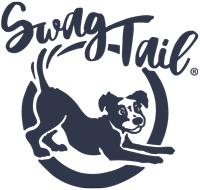

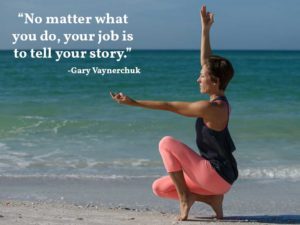

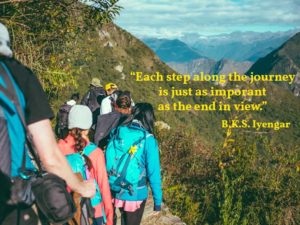

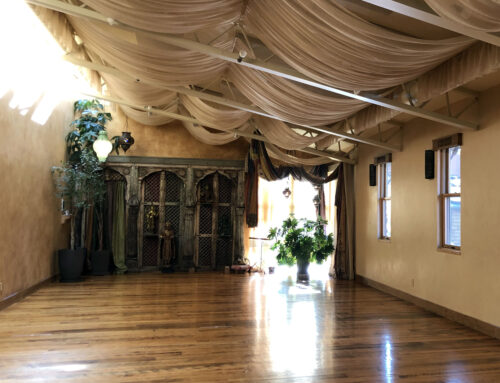
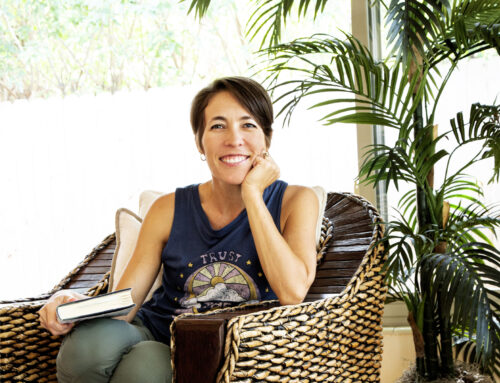



I’m meeting with a new wellness center tomorrow that is just getting started. I’ve been practicing for over a decade but only recently got certified so this is the first place I’ve heard back from. I was so nervous about what kind of questions to show up with and this was so helpful. Thank you for not only providing the questions but giving more context and examples. So glad I found your blog!